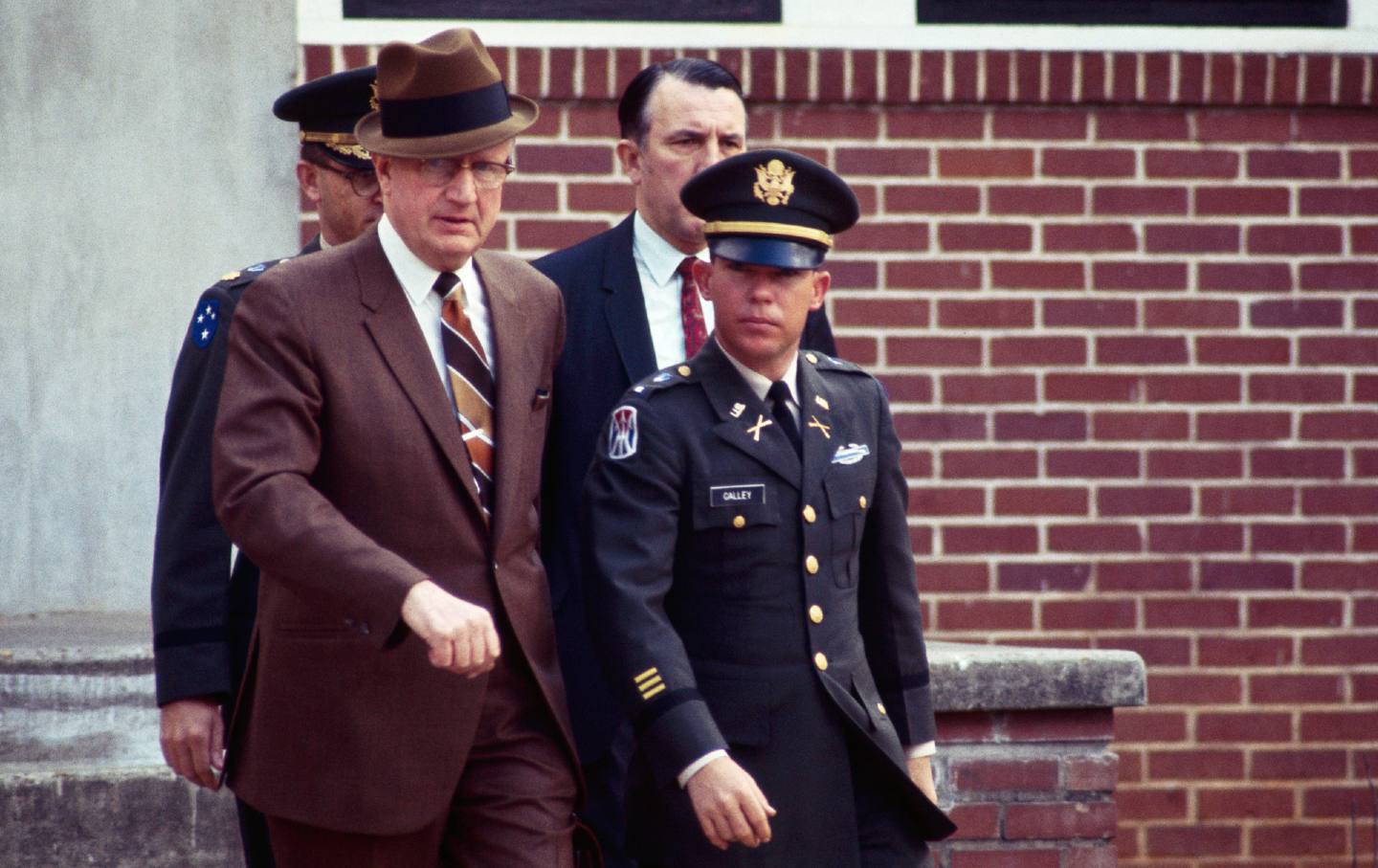
The recent death of Lt. William Calley, who perpetrated the My Lai Massacre in 1968, is an apt reminder of what the almost forgotten Vietnam War was about.
If truth is the first casualty in war, memory may be the last. Lies about a mythical attack on an American ship in the Gulf of Tonkin, lies about how we were winning when we never were, lies about who we were bombing and where. Lies piled on one another like dead bodies.
Here is what happened at My Lai on March 16 of that year. Lieutenant Calley led over 100 men into a small inland hamlet halfway up the eastern coast of South Vietnam. Calley’s orders from his superiors were ambiguous, but the idea was that anyone in the hamlet, including women, old men, and children—even babies— might be Vietcong or sympathizers, which meant communists. When Calley’s platoon arrived, they saw that no one in My Lai was armed. No soldiers were there at all. American troops met no resistance.
The victims were herded into ditches, or taken to the village center, and shot. After hearing from her son, one GI’s mother recalled, “I sent them a good boy and they made him a murderer.” Some villagers refused to come out of their huts; they were killed by grenades or bursts of gunfire. Children and infants were bayoneted and shot. Corpses were found with the name of Calley’s unit carved into their bodies.
An Army photographer took pictures of this killing orgy, so there was visual evidence and no doubt about what went on. Within less than four hours, the Americans estimated, they had killed 347 people. A body count. Calley himself drove cowering villagers into a ditch, then shot them. He ordered his troops to do the same. Witnesses said he shot a praying Buddhist monk. When Calley saw a young boy crawl out of the ditch, he threw the child back in and shot him. We’ve forgotten this; the Vietnamese haven’t. Their memorial at the site of My Lai today lists the names of 504 victims, ranging in age from 1 to 82.
Lieutenant Calley, when questioned about what happened at My Lai, said he was only following the orders of his superior officer, Capt. Ernest Medina, who had told him that everyone in My Lai was “the enemy.” Medina denied this and said his order was to kill only those who were armed. Witnesses at Calley’s trial said Medina gave the order to destroy anything that was “walking” or “crawling.” The atrocity was covered up in military reports, which called what happened a successful search-and-destroy mission. The chain of command ignored what had gone on, though two generals did know about it. Gen. William C. Westmoreland, the commander of all American forces in Vietnam, may never even have been told what happened, though some said he praised the American soldiers at My Lai for dealing “a heavy blow” to the Vietcong.
The kind of person Calley himself was helps explain what he could and couldn’t do. He was caught cheating in school and made to repeat the seventh grade. A Floridian, he enrolled in Palm Beach Junior College but dropped out after a semester with failing grades. He found a job as a switchman on the Florida East Coast Railroad, but was arrested on charges of allowing a train to block five downtown intersections in Fort Lauderdale during rush hour. He went west and enlisted in the Army in 1966. After basic training, he was accepted into Officer Candidate School. Despite his low aptitude-test scores, a poor command presence, and a graduation rank near the bottom of his class, he was somehow commissioned as a second lieutenant and sent to Vietnam as a platoon leader. Scraping the bottom of the barrel, the Army knew what it had with Calley, but it needed bodies. Fellow officers considered him an insecure leader, claiming he could barely read a map or a compass. His own troops didn’t respect him, but he was their leader, so they followed him.
The massacre was covered up.
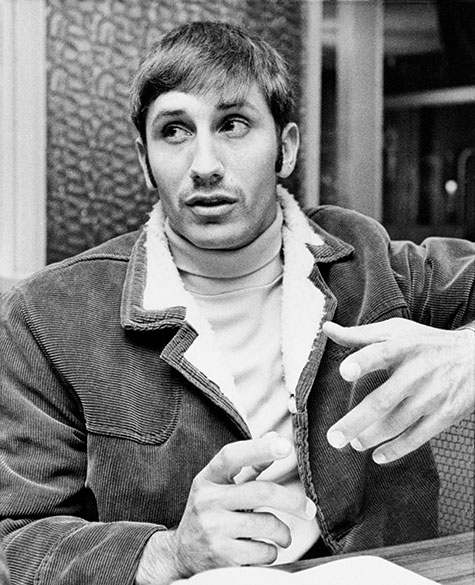
The cover-up might have succeeded and the slaughter never have become known to the American public except for the efforts of one of the most significant whistleblowers in American history. A helicopter gunner named Ronald Ridenhour, who was not at the scene but heard about the killings weeks later, began to do his own probing. Ridenhour interviewed soldiers who had been there. He returned to the United States, and nearly a year after the massacre, he wrote letters to President Richard Nixon, Defense Secretary Melvin Laird, and a number of members of Congress. This sparked an investigation, and after reviewing the photographs and witness testimony, the Army charged Calley with premeditated murder. He had been days away from his scheduled discharge.
The investigative journalist Seymour Hersh then tracked down Calley where he was being held, interviewed him, and wrote extensively about the massacre. This made the whole country aware of My Lai. Hersh won a Pulitzer Prize for his reports.
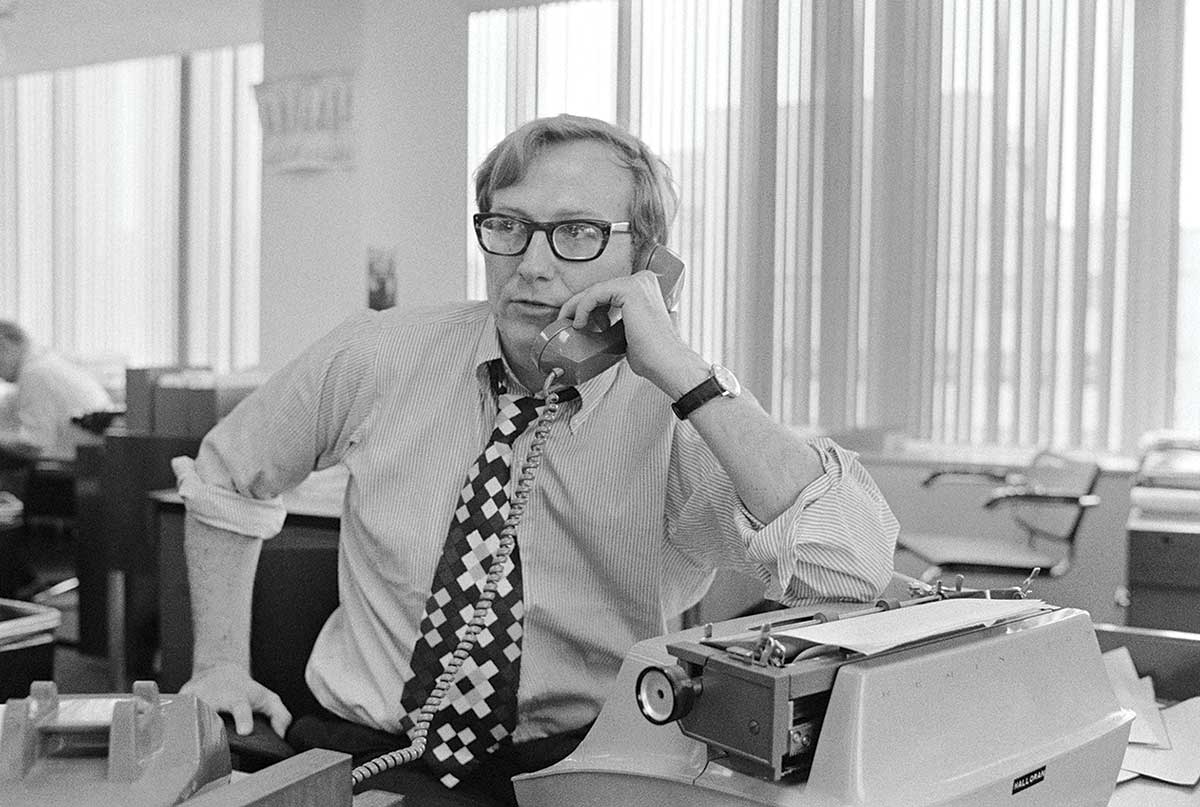
The Nation gives a prize every year in Ridenhour’s name.
Captain Medina and two dozen others were charged, but the other cases unraveled before trial or ended with not-guilty verdicts. Only Calley was convicted. He expressed no remorse at his trial and said he’d just been following orders. He was sentenced to life in prison. The commanding general at Fort Benning in Georgia reduced the sentence to 20 years; then the secretary of the Army cut it to 10. A federal judge in Georgia overturned Calley’s conviction, saying he was denied a fair trial because of prejudicial publicity. Calley was confined to his barracks for three months, then released on bail and never returned to custody.
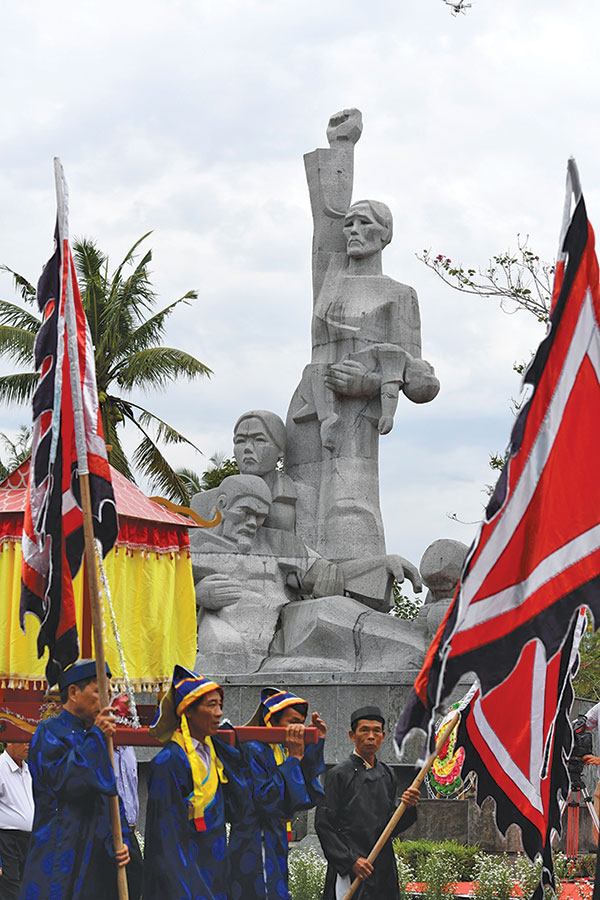
We are much further from the Vietnam War now than World War II was from World War I. We persist in believing we are the indispensable nation, the cop on every beat in the world. So we continue to fight: Iraq, Afghanistan, and who’s next? We seem to be on an endless quest to erase the mistake and failure of Vietnam. In 2003, when I reported on the war in Iraq for The Nation, a major thoroughfare in Sadr City, Baghdad’s huge Shiite slum, had been renamed Vietnam Street. It seemed that the American war against Iraq was going to be won by a noncombatant, Iran, today by far the most powerful country in the region.
In 1972, four years after My Lai, I was in Vietnam when I was invited to a cocktail party in Danang. A fervently anti-communist American philosophy professor, whose husband headed the local branch of Texaco, told me the United States’ biggest mistake had been to withdraw support from Ngo Dinh Diem, the president of South Vietnam, who was assassinated in 1963 when Americans looked favorably on the coup to overthrow him. Diem, she insisted, was a brilliant statesman as well as the second-greatest patriot in what she said was the entire 5,000-year history of Vietnam. I bit: Who, then, was the first-greatest patriot? “Ho Chi Minh,” said this staunch anti-communist without hesitation, referring to the leader of communist North Vietnam. That was when it became pretty clear we didn’t know what we were doing.
In 1973, when I interviewed General Westmoreland, he was retired, a comfortable patrician considering a run for governor in South Carolina. We were on the bank of a river a few miles outside of Charleston, where he lived. Westmoreland spoke about his career, his time in Vietnam, the war itself. Complained about how we were withdrawing troops too fast, still thought we might have won it. As for the Vietnamese people themselves, here is the most important thing he told me: “The Oriental doesn’t put the same high price on life as does the Westerner. Life is plentiful, life is cheap in the Orient, and as the philosophy of the Orient expresses it, life is not important.”
Popular
“swipe left below to view more authors”Swipe →In Latin they abbreviate that as QED. The English translation is, That says it all.
Support independent journalism that exposes oligarchs and profiteers
Donald Trump’s cruel and chaotic second term is just getting started. In his first month back in office, Trump and his lackey Elon Musk (or is it the other way around?) have proven that nothing is safe from sacrifice at the altar of unchecked power and riches.
Only robust independent journalism can cut through the noise and offer clear-eyed reporting and analysis based on principle and conscience. That’s what The Nation has done for 160 years and that’s what we’re doing now.
Our independent journalism doesn’t allow injustice to go unnoticed or unchallenged—nor will we abandon hope for a better world. Our writers, editors, and fact-checkers are working relentlessly to keep you informed and empowered when so much of the media fails to do so out of credulity, fear, or fealty.
The Nation has seen unprecedented times before. We draw strength and guidance from our history of principled progressive journalism in times of crisis, and we are committed to continuing this legacy today.
We’re aiming to raise $25,000 during our Spring Fundraising Campaign to ensure that we have the resources to expose the oligarchs and profiteers attempting to loot our republic. Stand for bold independent journalism and donate to support The Nation today.
Onward,
Katrina vanden Heuvel
Editorial Director and Publisher, The Nation
More from The Nation
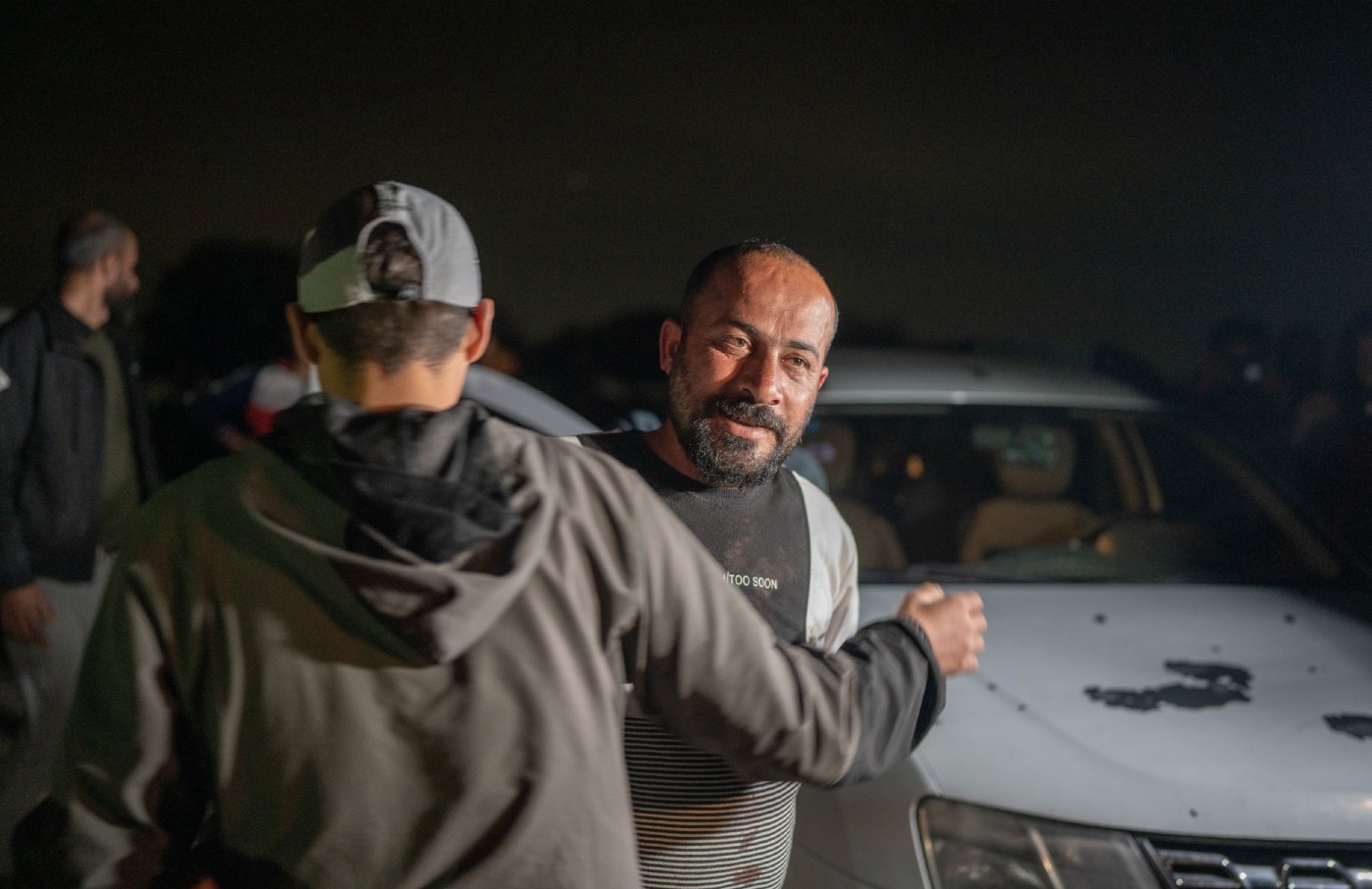
By Targeting Artists and Journalists, Israel Is Trying to Kill the Truth By Targeting Artists and Journalists, Israel Is Trying to Kill the Truth
The recent targeting of Hamdan Ballal, Hossam Shabat, and Mohammed Mansour shows that Israel sees the truth as a threat to be eliminated.
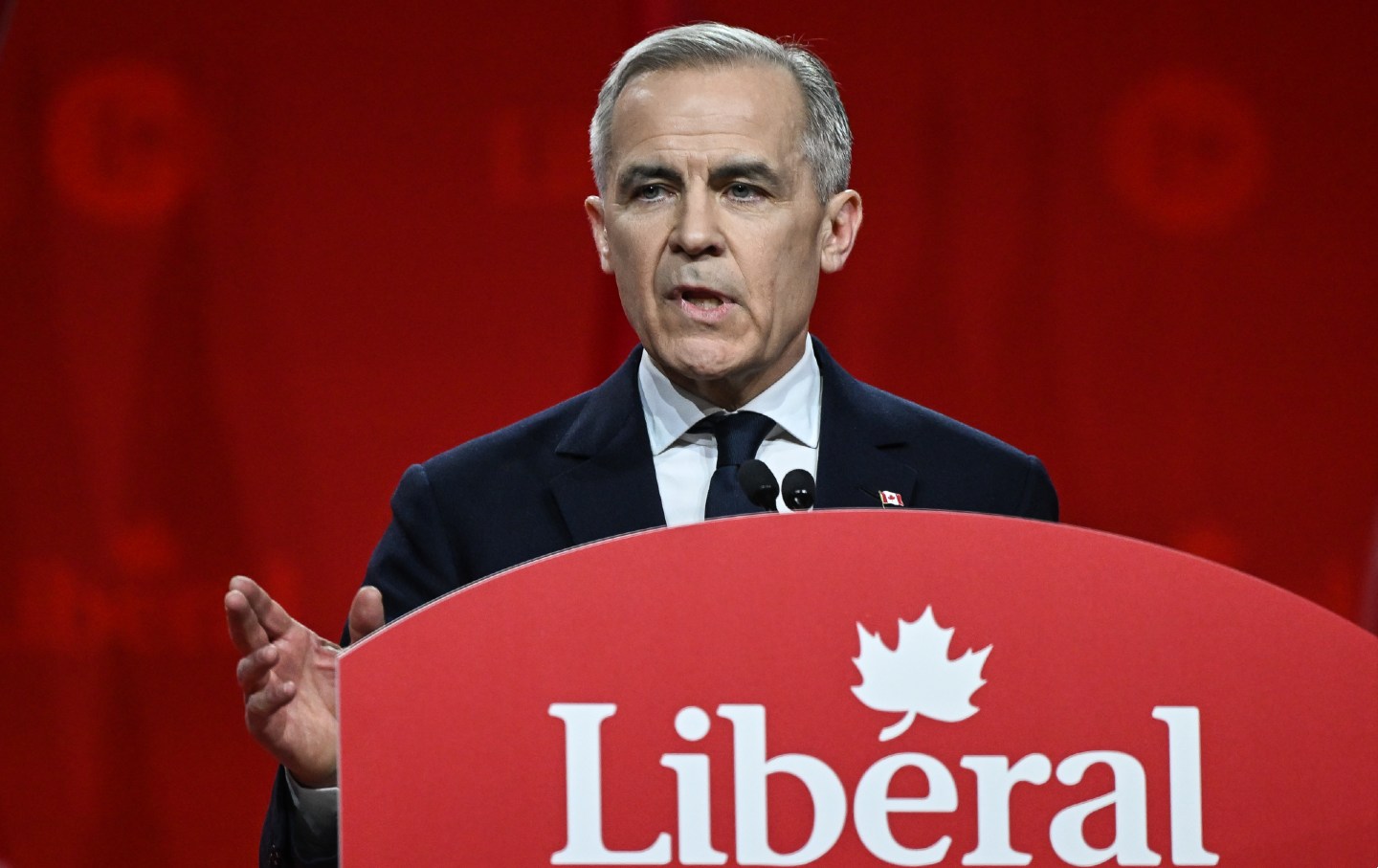
Trump’s Threat to Canada Won’t Be Defeated by Centrist Nostalgia Trump’s Threat to Canada Won’t Be Defeated by Centrist Nostalgia
You can’t fight fascism with cozy memories.
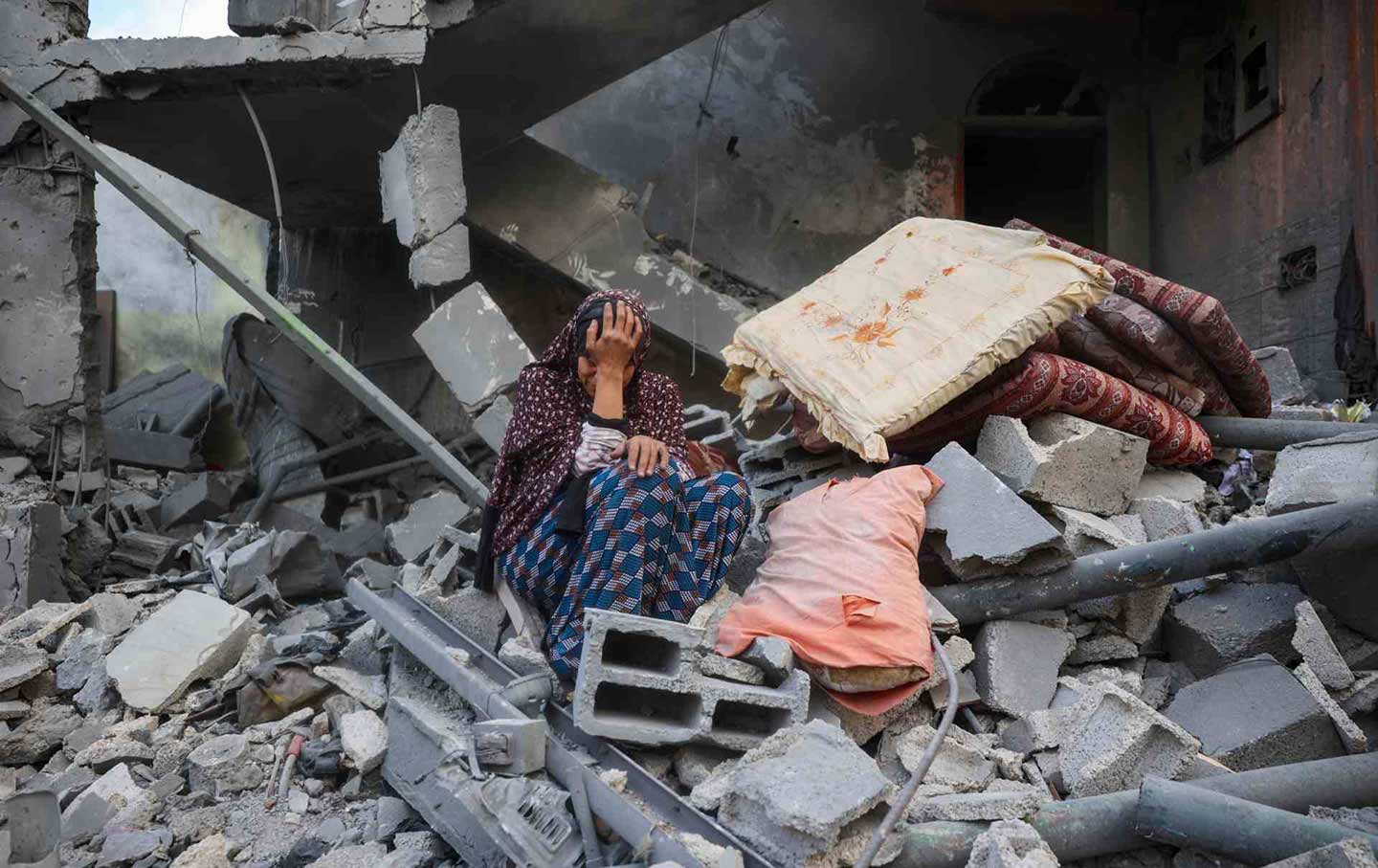
Israel’s Renewed Assault on Gaza Is a Prelude to Mass Expulsion Israel’s Renewed Assault on Gaza Is a Prelude to Mass Expulsion
With Trump’s green light for ethnic cleansing, Israel’s return to war threatens to become an all-out effort to empty the enclave of Palestinians.
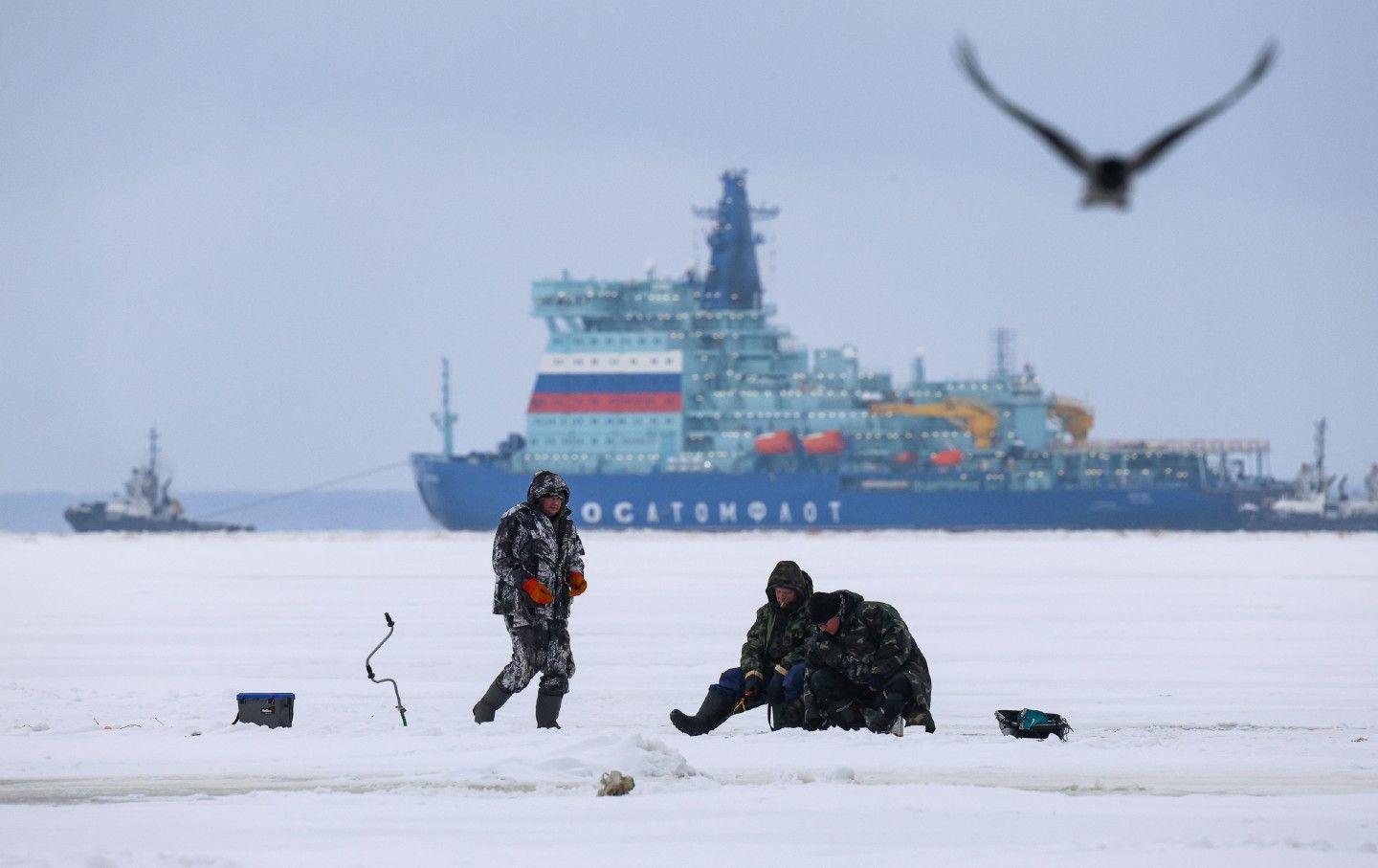
A New Age for US-Russia Arctic Cooperation? A New Age for US-Russia Arctic Cooperation?
Ceasefire talks could be a catalyst for advancing cooperation in the Arctic, but the climate crisis should not be forgotten.
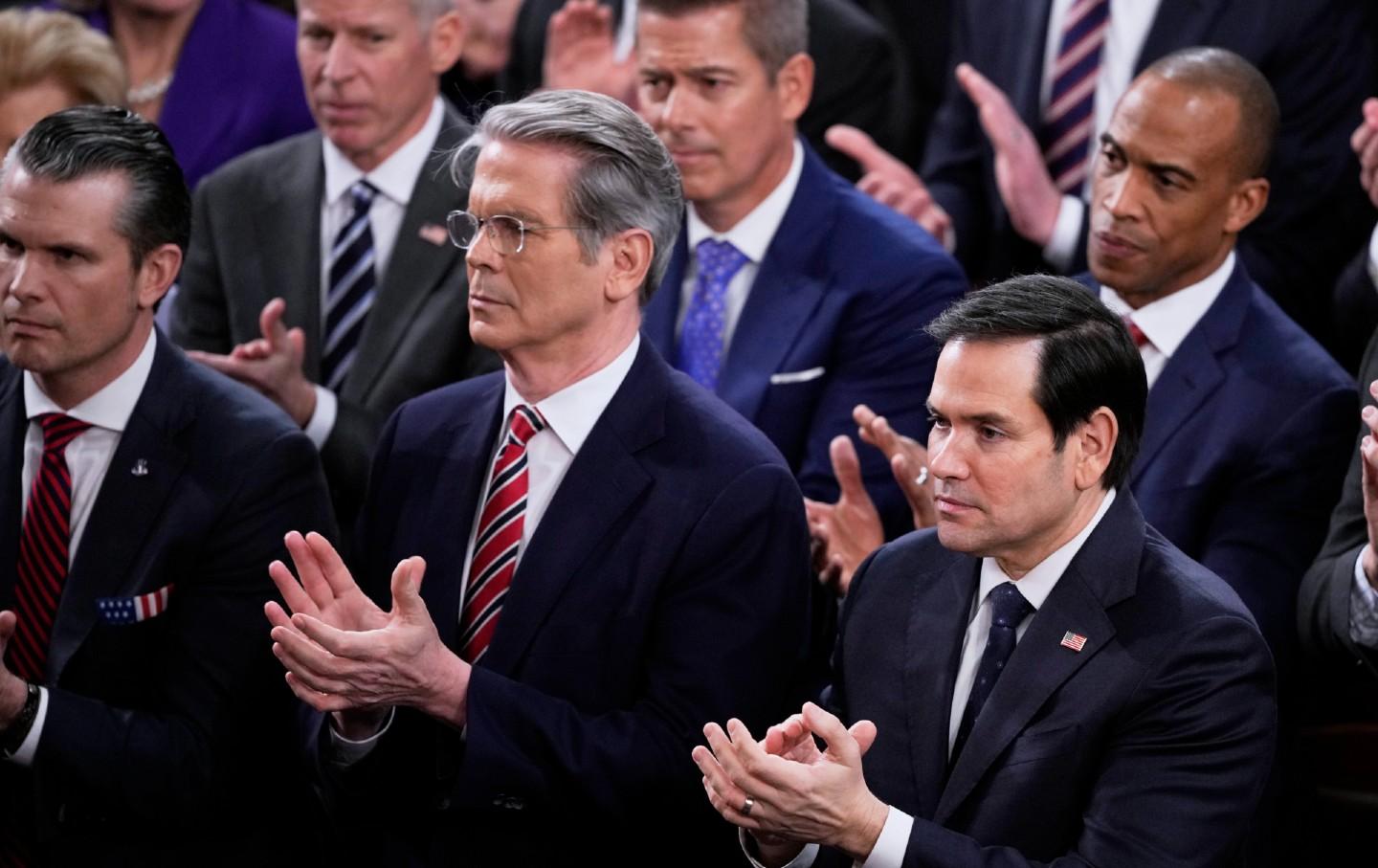
Peace, Not Surrender for Ukraine Peace, Not Surrender for Ukraine
We now have a chance to seize the opportunity that we failed to seize after the end of the Cold War.
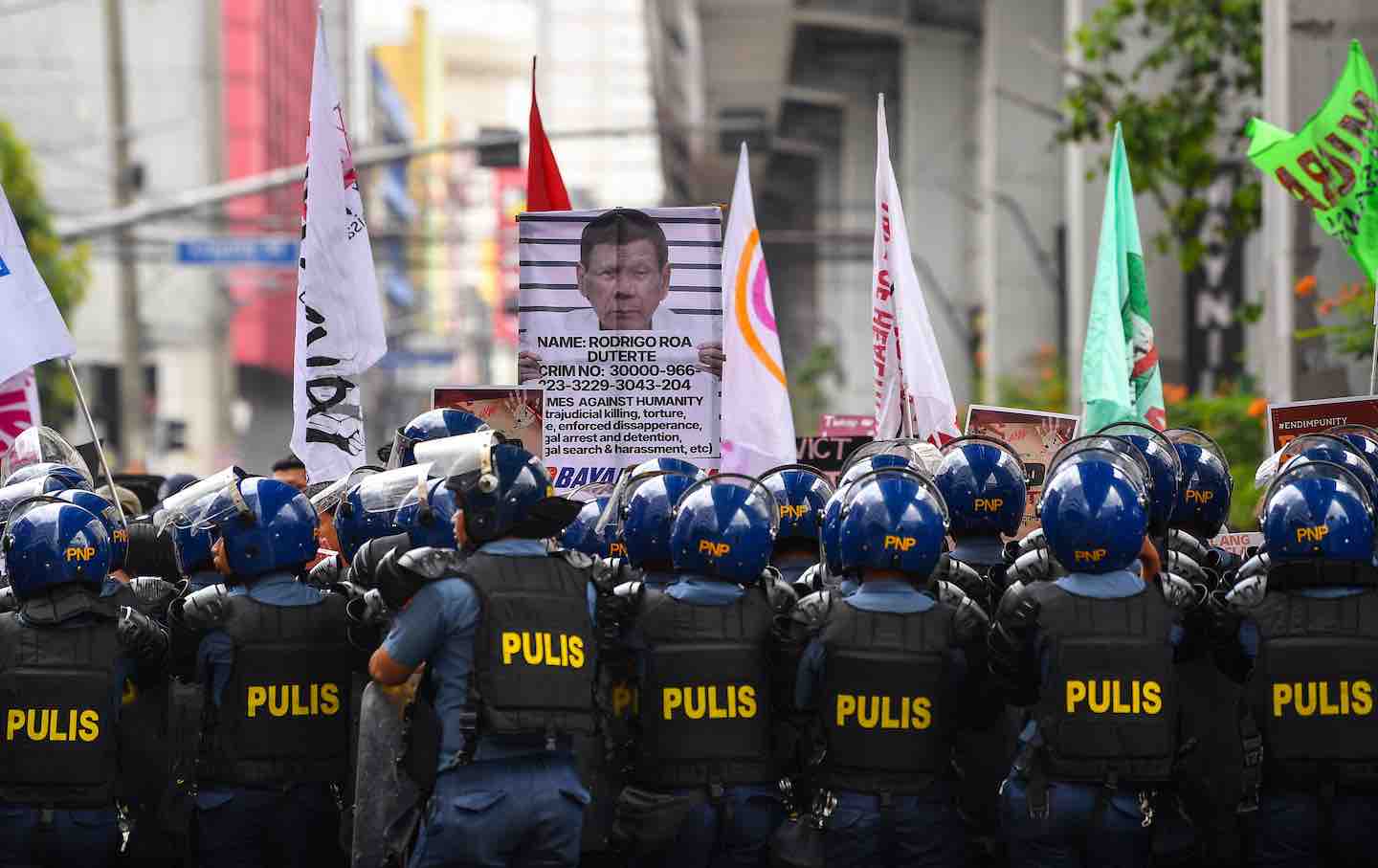
Rodrigo Duterte Is at The Hague. What’s Next for the Philippines? Rodrigo Duterte Is at The Hague. What’s Next for the Philippines?
His arrest by the ICC was a monumental step in prosecuting his bloody drug war. But it’s also the latest episode in a battle between the Philippines’ two political dynasties.


